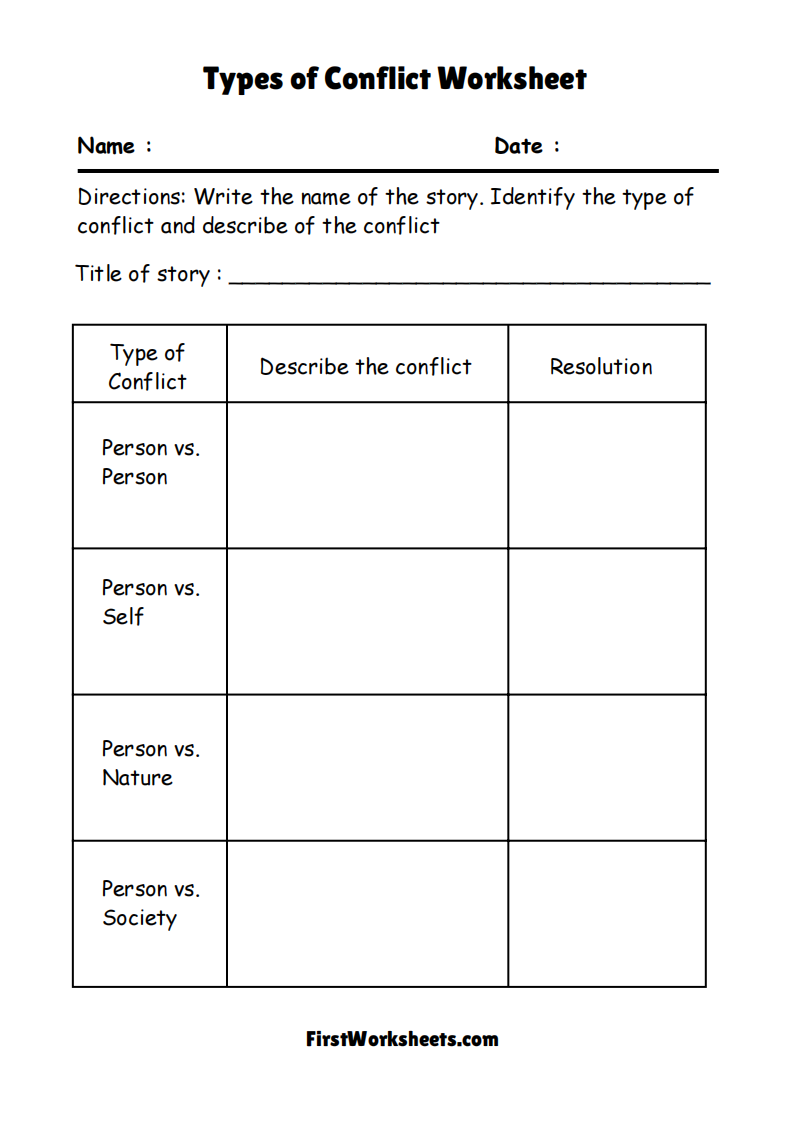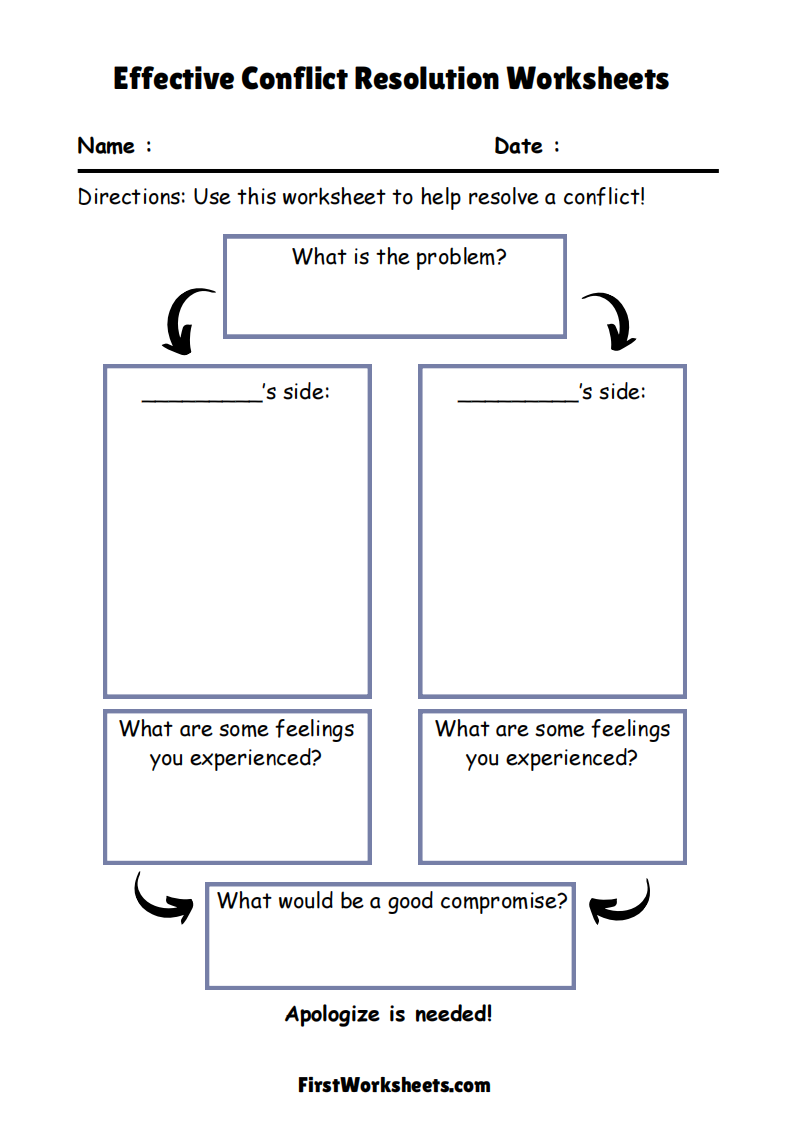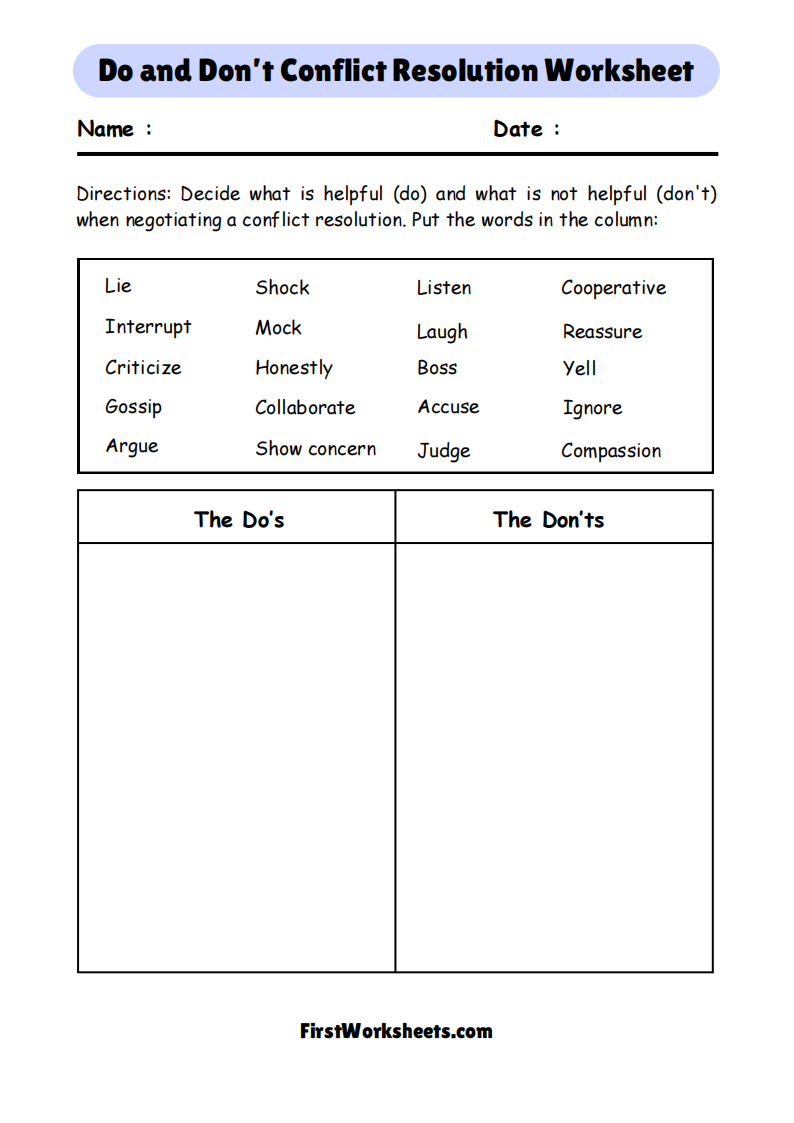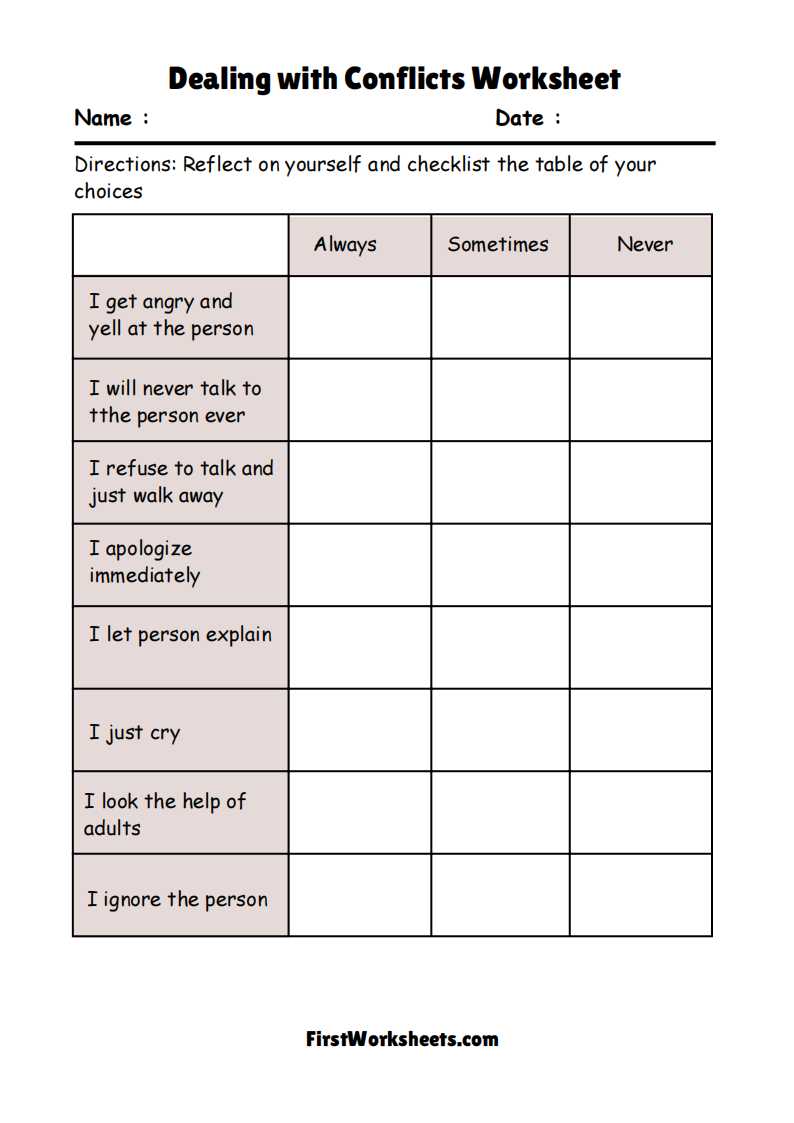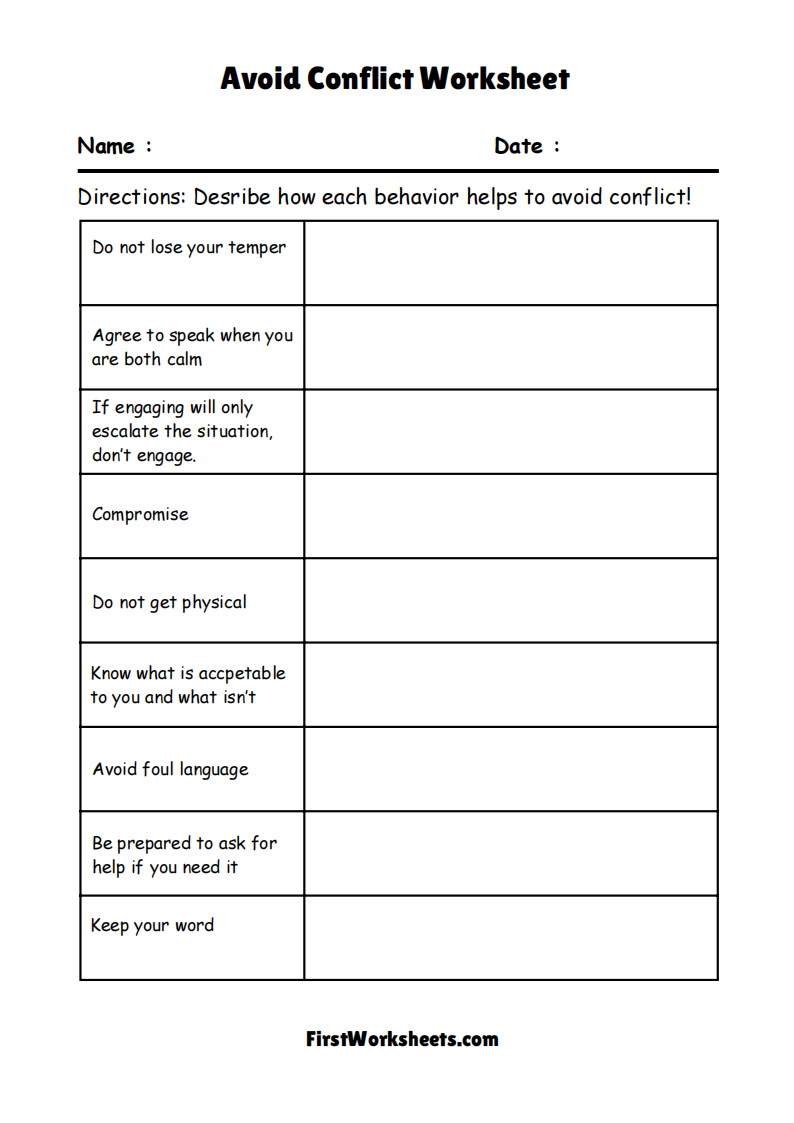Conflict Resolution Worksheets
Conflict resolution worksheets are educational tools designed to teach children the skills necessary to manage and resolve conflicts healthily and constructively. These worksheets often use age-appropriate language, scenarios, and activities to engage children in learning about emotions, empathy, communication, and problem-solving. Here’s an in-depth look at what these worksheets typically involve:
1. Understanding Emotions
- Identifying Emotions: One of the first steps in conflict resolution is helping children recognize and name their emotions. Worksheets may include activities like matching facial expressions to emotions, coloring activities to express feelings, or scenarios where kids identify how they might feel in different situations.
- Emotional Vocabulary: To help kids articulate their feelings, worksheets often provide vocabulary lists of emotions (e.g., angry, sad, frustrated, excited) and exercises to practice using these words. This builds emotional intelligence, a critical component of conflict resolution.
2. Recognizing Conflict Situations
- Common Scenarios: Worksheets may present common conflict scenarios that children encounter, such as disagreements with friends, sharing toys, or misunderstandings. Through these scenarios, kids learn to identify what a conflict looks like and when it occurs.
- Role-Playing: Some worksheets include role-play exercises where children act out different conflict situations. This helps them practice recognizing conflicts and understand the perspectives of others involved.
3. Problem-Solving Skills
- Brainstorming Solutions: A key part of conflict resolution is finding solutions. Worksheets might guide children through brainstorming various solutions to a conflict, teaching them that there can be multiple ways to resolve a problem. Activities like “Think-Pair-Share” encourage kids to come up with ideas independently and then discuss them with peers.
- Decision-Making: Worksheets often include decision-making exercises where children weigh the pros and cons of different solutions. For example, they might have to decide what action to take in a given scenario and explain why it is the best choice. This teaches them to think critically about the outcomes of their actions.
4. Communication Skills
- ‘I’ Statements: One common technique taught through these worksheets is the use of “I” statements. For example, instead of saying “You made me mad,” children learn to say “I feel upset when you take my toy without asking.” Worksheets provide practice in constructing these statements, which helps them express their feelings without blaming others.
- Active Listening: Conflict resolution requires not just speaking but also listening. Worksheets often include activities where children practice active listening skills, such as repeating back what the other person has said or showing understanding through body language. This encourages empathy and effective communication.
5. Empathy and Perspective-Taking
- Walking in Someone Else’s Shoes: Many worksheets incorporate activities that encourage children to see things from another person’s perspective. For instance, they might read a story about a conflict and be asked how each character feels and why. This fosters empathy, helping kids understand that conflicts often arise from misunderstandings.
- Empathy Mapping: Some worksheets use visual tools like empathy maps where children fill out sections describing what someone might be thinking, feeling, saying, and doing in a conflict. This helps them develop a deeper understanding of others’ emotions and reactions.
6. Developing Positive Strategies
- Calming Techniques: Children learn strategies to manage their emotions before addressing the conflict. Worksheets may include activities on deep breathing, counting to ten, or using a stress ball. Learning to calm down helps children approach conflicts more rationally.
- Collaborative Problem-Solving: Worksheets often emphasize working together to find a solution. Activities may include cooperative games or exercises where kids practice negotiating, compromising, and collaborating to reach a resolution that is acceptable to all parties.
7. Reflective Exercises
- Conflict Reflection: After practicing or experiencing a conflict, children can use worksheets to reflect on what happened, how they felt, and what they learned. They might answer questions like, “What did I do well?” and “What could I do differently next time?” Reflection helps them internalize conflict resolution skills.
- Journaling: Some worksheets encourage children to keep a journal of conflicts they encounter and how they handled them. This ongoing self-reflection promotes continuous learning and improvement in their conflict resolution abilities.
8. Games and Interactive Activities
- Scenario Cards: Worksheets might include scenario cards that children can use in group activities. They read the scenario, discuss what they would do, and role-play the resolution. This interactive approach makes learning more engaging.
- Conflict Resolution Bingo: Fun activities like bingo games, where children mark off different conflict resolution strategies they use, can motivate them to practice these skills in real-life situations.
9. Family and Classroom Involvement
- Home-School Connection: Worksheets often come with suggestions for parents and teachers to reinforce the lessons at home or in the classroom. Activities might include family discussions about conflicts, group exercises in class, or collaborative games that promote positive interaction.
- Classroom Rules and Agreements: Some worksheets help children contribute to creating a set of classroom or family rules for managing conflicts. This involvement gives them a sense of ownership and encourages adherence to agreed-upon guidelines.
Benefits of Conflict Resolution Worksheets for Kids
- Promote Social Skills: They teach children to interact positively with peers, fostering better relationships and a more harmonious classroom environment.
- Build Confidence: As kids learn and practice conflict resolution, they become more confident in handling disputes on their own.
- Reduce Behavioral Issues: By providing constructive outlets for managing conflicts, these worksheets can help reduce aggressive or disruptive behaviors.
- Lifelong Skills: The skills learned through these worksheets are not only essential for childhood but also form the foundation for healthy relationships and effective communication throughout life.
By incorporating these elements, conflict resolution worksheets offer a comprehensive approach to teaching children how to navigate disputes and build healthy social interactions. They provide practical tools that children can use in various situations, whether at school, home, or in their community.
